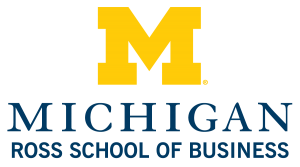Tata Consultancy Services (TCS) is a top Indian software services and consulting firm. This profile analyzes the company’s strategic implementation of technology to enable Human Resources. TCS’s technology-driven HR model, known as the Replenishment Model (RPM), allows the company to leverage knowledge around the world, constantly recruit thousands of new employees, coordinate teams of executives in different geographies to meet milestones for specific projects, manage organizational learning, create communities of innovation, and maintain transparency of talent and skills throughout its worldwide organization. TCS’s ability to recruit and dynamically reconfigure its talent to delivery services globally and fuel innovations of both products and processes is among the company’s key competitive advantages in winning business.
Tata Consultancy Services: Global Talent Leverage
by: C.K. Prahalad, M.S. Krishnan
Publication Date: September 21, 2010
Length: 26 pages
Product ID#: 1-428-835
Core Disciplines: Information - Technology & Management, International Business, Strategy & Management
Available Documents
Click on any button below to view the available document.
Don't see the document you need?
Don't See the Document You Need?
Make sure you are registered and/or logged in to our site to view product documents. Once registered & approved, faculty, staff, & course aggregators will have access to full inspection copies and teaching notes for any of our materials.
Make sure you are registered and/or logged in to our site to view product documents. Once registered & approved, faculty, staff, & course aggregators will have access to full inspection copies and teaching notes for any of our materials.
$3.95
Need to make copies?
If you need to make copies, you MUST purchase the corresponding number of permissions, and you must own a single copy of the product.
Electronic Downloads are available immediately after purchase. "Quantity" reflects the number of copies you intend to use. Unauthorized distribution of these files is prohibited pursuant to term of use of this website.
Teaching Note
This product does not have a teaching note.
Description
Teaching Objectives
After reading and discussing the material, students should:
- describe appropriate business terms and principles approriate to this case,
- apply critical concepts from earlier learning to define a solution to the case,
- successfully articulate data and information in support of the solution proposed,
- critically analyze and discuss other responses and solutions to the case,
- draw lessons from the case analysis,
- generalize the learnings of this case to other business challenges and decisions in organizations other than the one analyzed in this case study,
- demonstrate leadership and scholarship in analysis.

